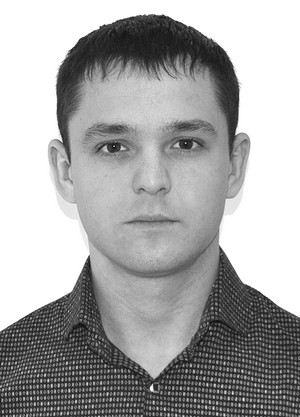Variations of functionality, cardiorespiratory system and physical work capacity rates depending on PE process design for 1-11-graders
Фотографии:
ˑ:
Teoriya i praktika fizicheskoy kultury №11 2016, pp. 101-104
UDC 61+372.016:796
Postgraduate N.V. Yachmenev1
Professor, Dr.Med. V.B. Rubanovich1
1Novosibirsk State Pedagogical University, Novosibirsk
e-mail: Yachmenev1988@mail.ru
Objective of the study was to explore the functionality variations in the 1-11-year school students depending on the physical education (PE) process designs including the cycled and traditional ones. Subject to the study were the 1-2, 6-7 and 10-11-year school students of the “Our School” Education Establishment (Novosibirsk) forming a Study Group of 48 boys and the Secondary School #169 (Novosibirsk) students forming a Reference Group of 75 boys.
Subject to tests and analyses under the study were the physiological external breathing, cardiovascular system performance and physical work capacity rates of the 1-11-year school students under different PE process designs. The study data showed the variation trends of the test rates being more favourable in the cycled PE process design as compared to the traditional one, with the tested differences of the both groups found to increase over the period under study.
Keywords: school children, physical education, PE process design formats.
References
- Bal'sevich V.K. Infrastruktura vysokoeffektivnogo fizicheskogo vospitaniya v obshcheobrazovatel'noy shkole: metodologiya proektirovaniya i ekspluatatsii [Infrastructure of efficient physical education in comprehensive school: design and implementation methodology]. FK: vospitanie, obrazovanie, trenirovka, 2003, no. 4, pp. 2-6.
- Baranov A.A., Kuchma R.V., Sukhareva I.M. Sostoyanie zdorov'ya sovremennykh detey i podrostkov i rol' mediko-sotsial'nykh faktorov v ego formirovanii [State of health of modern children and adolescents and role of medical and social factors in its formation]. Vestnik Rossiyskoy akademii meditsinskikh nauk, 2009, no. 5, pp. 6-11.
- Bezrukikh M.M., Filippova T.A. Kak razrabotat programmu formirovaniya kultury zdorovogo i bezopasnogo obraza zhizni v obrazovatel'nom uchrezhdenii [Healthy and safe lifestyle culture formation program: development procedure for educational institutions]. Nachalnaya shkola: Prosveshchenie publ.. Moscow, 2012. – 128 p.
- Vishnevskiy V.A. Zdorov'esberezhenie v shkole (pedagogicheskie strategii i tekhnologii) [Health protection in schools (pedagogical strategies and technologies]. Teoriya i praktika fiz. kultury, 2002, 270 p.
- Izaak S.I., Kabachkov V.A. Monitoring fizicheskogo zdorovya v obrazovatel'noy srede: teoriya i praktika [Monitoring of physical health in educational environment: theory and practice]. Dopolnitelnoe obrazovanie, 2004, no. 8, pp. 44-48.
- Kleshchina J.V. Sostoyanie zdorov'ya sovremennykh shkol'nikov i perspektivy ego ukrepleniya [State of health of modern pupils and strengthening prospects]. Ros. ped. zh.,2009, no. 3, pp. 48-51.
- Kopylov Y.A. Odin, dva… tri [One, two ... three]. Fizicheskaya kultura v shkole, 2005, no. 4, p. 7.
- Kupchina E.N. Organizatsionno-pedagogicheskie usloviya povysheniya kachestva urokov fizicheskoy kul'tury: avtoref. kand. ped. nauk [Organizational teaching conditions to improve quality of physical education lessons. PhD diss. abstr.]. St. Petersburg, 2008, 22 p.
- Levushkin S.P. Fiziologicheskoe obosnovanie fizicheskoy podgotovki shkol'nikov 7-17 let s raznymi tipami teloslozheniya: dis. dokt. biol. nauk [Physiological substantiation of physical training of 7-17 year olds having different body types. Doct. diss. (Biol.)]. Moscow, 2005, 300 p.
- Lubysheva L.I. Sotsial'no-pedagogicheskie aspekty novovvedeniy v organizatsii i soderzhanii fizicheskogo vospitaniya uchashcheysya molodezhi [Sociopedagogical aspects of innovations in organization and content of physical education of young people]. Mater. mezhdunar. nauch.- prakt. konf. "Zdorov'e i fizicheskie uprazhneniya" [Proc. Intern. res.-pract. conf. "Health and Exercises"]. Tyumen: TSU, 2000, pp. 113-119.
- Mezhidov K.S., Kalmykova A.S. Fizicheskoe razvitie shkolnikov g. Groznogo [Physical development of schoolboys in Grozny]. «Aktual'nye voprosy pediatrii i neonatologii»(Proc. res-pract. conf. of pediatricians and neonatologists "Actual problems of pediatrics and neonatology"]. Stavropol, 2012. – P. 72-77.
- Rubanovich V.B. Morfofunktsional'noe razvitie detey i podrostkov raznykh konstitutsional'nykh tipov v zavisimosti ot dvigatel'noy aktivnosti: dis. dokt. med. nauk (Morphofunctional development of children and adolescents of different somatotypes in view of motor activity: doct. diss. (Med.)]. Novosibirsk, 2004, 406 p.
Received 15.01.2016 г.




 Журнал "THEORY AND PRACTICE
Журнал "THEORY AND PRACTICE